Invictus Team Romania for Invictus Games Toronto 2017
Romania has announced the team that will represent it at the Invictus Games Toronto 2017. Participating for the first time at the game, after receiving the invitation in September 2016, the Romanian team will count 15 wounded soldiers and veterans, that will participate in 7 adaptive sports: archery, athletics, indoor rowing, powerlifting, road cycle, sitting volleyball, swimming.
Athletics
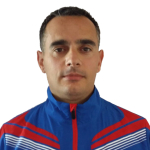 Major Laurentiu Serban, Special Operations Component, Bucharest
Major Laurentiu Serban, Special Operations Component, Bucharest
The warrior suffered an amputation in his right leg in 2006 in Afghanistan following the explosion of an improvised explosive device. During a mission, the armored amphibian carrier in front of Laurentiu’s vehicle activated an improvised explosive device and caught fire. In an attempt to save his comrades, Laurentiu triggered another improvised explosive device.
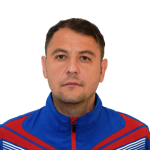 Sergeant first class Doru Hamza, 300th Infantry Battalion “Sf.Andrei”, Galati
Sergeant first class Doru Hamza, 300th Infantry Battalion “Sf.Andrei”, Galati
The warrior was injured in Afghanistan in 2008 when, during a patrol on the Qalat-Kandahar highway, the armored amphibian conveyor in which he was crossed over an improvised explosive device.
 Sergeant Bogdan Dragomir, 620th Special Operations Battalion, Buzau
Sergeant Bogdan Dragomir, 620th Special Operations Battalion, Buzau
Bogdan was wounded in Afghanistan in 2016 by insurgents wearing Afghan security uniforms, during a mission to train Afghan police officers. Bogdan was shot in the right shoulder.
Road cycle
 Sergeant major Costel Stanciu, 630th Paratroopers Battalion, Bacau
Sergeant major Costel Stanciu, 630th Paratroopers Battalion, Bacau
The warrior was seriously injured in Afghanistan in 2012 following the explosion of an improvised explosive device during a mission with a detachment of the Special Operations Forces. The soldier suffered an amputation in his right leg.
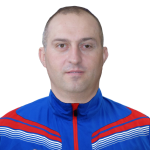 Sergeant major Costinel Slăniceanu, CBRN Defense Training Base, Campulung Muscel
Sergeant major Costinel Slăniceanu, CBRN Defense Training Base, Campulung Muscel
The warrior was seriously injured in Afghanistan in 2006 following the explosion of an improvised explosive device. Costinel was hospitalized for 6 months and he underwent 14 surgeries. For a month, he was in a coma. He is currently wearing a prosthesis and has lost sight of an eye, and his face still carries shrapnel.
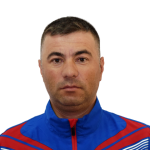 Master Sergeant Irinel Matei, CBRN Defense Training Base, Campulung Muscel
Master Sergeant Irinel Matei, CBRN Defense Training Base, Campulung Muscel
The warrior was injured in 2008 on a patrol mission on the A1 Motorway in Afghanistan, about 20 kilometers from Qalat. The armored amphibious conveyor in which he was had initiated an improvised explosive device. Following the incident, he suffered a craniocerebral polytrauma.
Indoor rowing
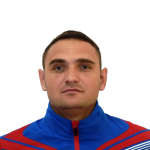 Lieutenant Ciprian Iriciuc, 17th Mountain Troops Battalion “Dragos Voda”, Vatra Dornei.
Lieutenant Ciprian Iriciuc, 17th Mountain Troops Battalion “Dragos Voda”, Vatra Dornei.
The warrior was injured in his second deployment to Afghanistan in 2015 after a car bomb exploded while on a patrol mission in the area of responsibility. Ciprian was left with a shrapnel in his lung after the incident.
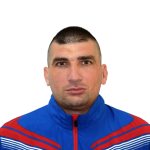 Master Sergeant Dumitru Paraschiva, “Constantin Brancoveanu” Training Center for Infantry and Mountain Troops, Fagaras
Master Sergeant Dumitru Paraschiva, “Constantin Brancoveanu” Training Center for Infantry and Mountain Troops, Fagaras
The warrior was injured in 2009 in Afghanistan during a mission of the rapid intervention sub-unit. In a mixed patrol with a team of American engineers, the Humvee-type lightweight vehicle drove over an improvised explosive device. The soldiers were also attacked with light infantry gunfire and anti-tank grenade launcher. Dumitru suffered a craniocerebral trauma and spent almost two months in an induced coma.
Powerlifting
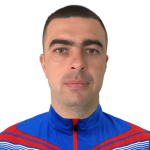 Major Nicolae Grigore, Protection and Security Detachment of the Ministry of National Defense, Bucharest.
Major Nicolae Grigore, Protection and Security Detachment of the Ministry of National Defense, Bucharest.
The warrior was injured in Afghanistan in 2007. His platoon was asked to intervene in support of an American patrol caught in an ambush by insurgents. The first armored amphibian transporter in the Romanian patrol initiated an improvised explosive device. Following the incident, Nicholas suffered cuts on his left shoulder and chest burns.
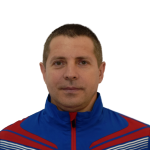 Sergeant major Eugen Mănăilă, 620th Special Operations Battalion, Buzau,
Sergeant major Eugen Mănăilă, 620th Special Operations Battalion, Buzau,
The warrior was injured in Afghanistan in 2010, while performing a patrol mission on the A1 motorway, Kabul-Kandahar. His Humvee passed over an improvised explosive device, about 25 km southwest of Qalat in Zabul province. He has undergone six operations and spent six months in a wheelchair.
Archery
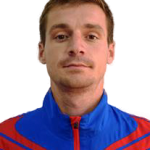 Caporal Eugen Pătru, 84th Maintenance Center, Bucharest
Caporal Eugen Pătru, 84th Maintenance Center, Bucharest
The warrior was injured in Afghanistan in 2014 in a suicide car bomb attack. As a result of the incident, Eugen lost all his calf muscles and suffered a complete paralysis of the sciatic nerve.
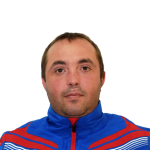 Sergeant first class Ionuț Butoi, CBRN Defense Training Base, Campulung Muscel
Sergeant first class Ionuț Butoi, CBRN Defense Training Base, Campulung Muscel
The warrior was seriously injured in 2008 in Afghanistan. While performing a patrol mission on the Qalat-Kandahar highway, the vehicle was thrown in the air by the blow of an improvised explosive device. The explosion fractured his column and he is currently using a wheelchair.
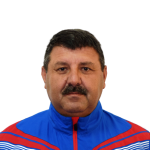 Colonel Augustin Pegulescu, commander of the Timis Zonal Military Center
Colonel Augustin Pegulescu, commander of the Timis Zonal Military Center
The warrior was seriously injured in 2009 in Afghanistan during a reconnaissance Command-Control mission in the province of Zabul. The Humvee in which he was had initiated an improvised explosive device. Following the incident, his left foot was amputated.
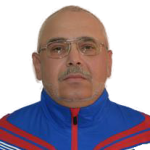 Colonel Dorin Petruț, retired
Colonel Dorin Petruț, retired
The warrior was injured in 2007 in Iraq after an indirect fire attack with missiles. Protecting a British colleague, the blow and shrapnel from the explosion hurt him in his left foot.
Swimming
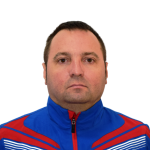 Master sergeant Ionel Eugen Bida, Emergency Military Hospital “Alexandru Gafencu”, Constanta.
Master sergeant Ionel Eugen Bida, Emergency Military Hospital “Alexandru Gafencu”, Constanta.
Eugen was wounded in Afghanistan in 2010 during an OMLT patrol mission, deployed in Zabul province. The Romanian-American-Afghan mixed team was attacked by infantry insurgents, and he suffered multiple fractures of the right tibia.
The sitting volleyball team will include all wounded soldiers.
Invictus Games Toronto 2017
▪ Presented by Jaguar Land Rover, the Invictus Games Toronto 2017 will be the third and largest Games yet, with more competitors, participating nations and sports than ever before. From September 23 to 30, 2017, Toronto will host more 550 competitors from 17 nations, competing in 12 sports, including wheelchair rugby, swimming and new to the 2017 Games, golf.
▪ All competitors will be active duty and veteran service members from participating nations who have become ill or injured during or as a direct consequence of their service.
▪ “Invictus” is the title of a short Victorian poem written in 1875 by the English poet William Ernest Henley. The word “Invictus” is Latin for unconquered. The motto for the Invictus Games is ‘I AM the master of my fate, I AM the captain of my soul” which was inspired by the final two lines of the poem, and reflects the unconquerable spirit of our wounded warriors.
Invictus Games
The Invictus Games were established in 2014 by Prince Harry. It is the only international adaptive sporting event for wounded, ill and injured active duty and veteran service members, inspired by the US-based Warrior Games. The Games use the power of adaptive sport to help wounded warriors on their journeys to recovery.
The inaugural Invictus Games took place in London in fall of 2014. Over 450 competitors from 13 nations attended the Games to compete in a variety of adaptive sports.
In May 2016, the second Invictus Games were held in Orlando, Florida, and built on the excitement of the London Games with more than 500 competitors from 15 nations.
photos courtesy of Invictus Team Romania members
Adaptive Sport and Mental Health
Adaptive sport (or parasport) is the competitive sport for individuals with disabilities. It closely resembles the sport played by able-bodied athletes, but with some modifications to rules and equipment to better meet the needs of participants.
In forming competitive teams, disabilities are generally classified by broad groups, such as physical, cognitive/developmental delays or both, allowing participants to compete against players with the same skill level.
Adaptive sport is often incorporated into the rehabilitation of ill, wounded or injured persons.
Competitions like the Invictus Games help currently serving members or veterans overcome their physical or mental health illness or injury.
Through adaptive sport, these men and women:
- Develop a sense of belonging;
- Show increased self-esteem;
- Create an outlet for excess energy;
- Foster a sense of camaraderie with other wounded service members;
- Experience an improved quality of life.





Pingback: The Romanian Peony - Tactica Magazine